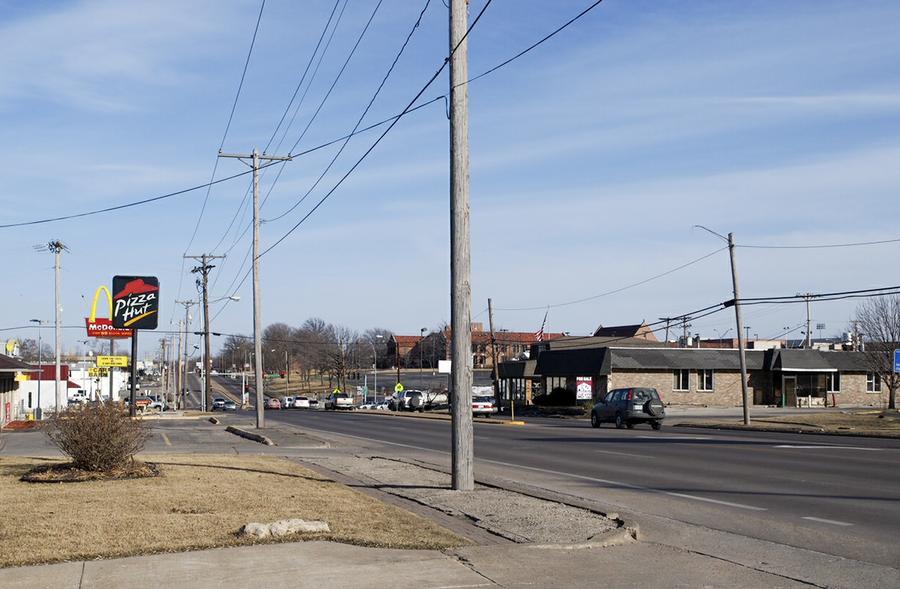When City Council decided to improve the corner of Business Loop 70 and Providence Road 10 years ago, they moved above-ground utility poles off the busy street — and into resident Patricia Kelley’s backyard. The three-phase 220-volt pole crowded her maple tree and killed it, and Kelley said it’s an eyesore whenever she looks out her window.
“The last time that they made decisions to beautify the Business Loop, it was really horrible for me,” said Kelley, who lives just south of Business Loop 70 and is the treasurer of the Ridgeway Neighborhood Association.
Kelley said she is worried the Business Loop 70 Community Improvement District, a political subdivision designed to finance the needs of a district, voted in last Monday by City Council will continue to patch-up problems at the expense of neighborhoods. CIDs use sales taxes to invest in public-use facilities or public services for the community to use. Columbia already has one [CID designated to the downtown area](http://discoverthedistrict.com/).
“I’m really concerned that there is no involvement from neighborhood associations in the CID, and I’m really shocked that the council approved the CID without outlining any way to make this project more inclusive,” Kelley said. “It doesn’t make any sense to improve the Business Loop but not adjacent neighborhoods; the Business Loop and neighborhoods should raise each other up together.”
Kelley spoke at the April 20 meeting that approved the CID, its board and its ability to impose a half-cent sales tax within the district. She and other representatives from neighborhood associations asked the council to delay the bill in order to include feedback and representation from the associations.
“CIDs are great things, but the devil’s in the details,” said Third Ward Councilman Karl Skala, who opposed the bill.
Skala said he was worried that once the CID got taxing authority, it would be essentially autonomous, and would not take feedback from council or neighborhoods. Skala recommended delaying the bill for a few months, but he withdrew the motion, as he said he knew it would fail.
“I didn’t think delaying for a while would put an undue burden on folks trying to put this together and it would have established goodwill within the neighborhoods,” Skala said.
But Second Ward councilman Michael Trapp said he believes the CID will be a good way to give the corridor a facelift and present a better face to visitors and travellers stopping off I-70.
“The Business Loop needs some attention,” Trapp said. “As a corridor and an entrance to Columbia, it’s not a very attractive place.”
Trapp, who lives near the Business Loop, said he believes the CID’s intention to fix sidewalks and pedestrian routes will increase walkability and connectivity.
“I think it’s great that a group of business owners have decided to tax themselves to improve their community,” he said.
However, Kelley remains skeptical and said she hopes the CID and council will consult neighborhood associations in the future.
“For a lot of issues in Columbia, a few people who own property make decisions for everyone,” Kelley said. “But when various interest groups work together, you always get better results.”








